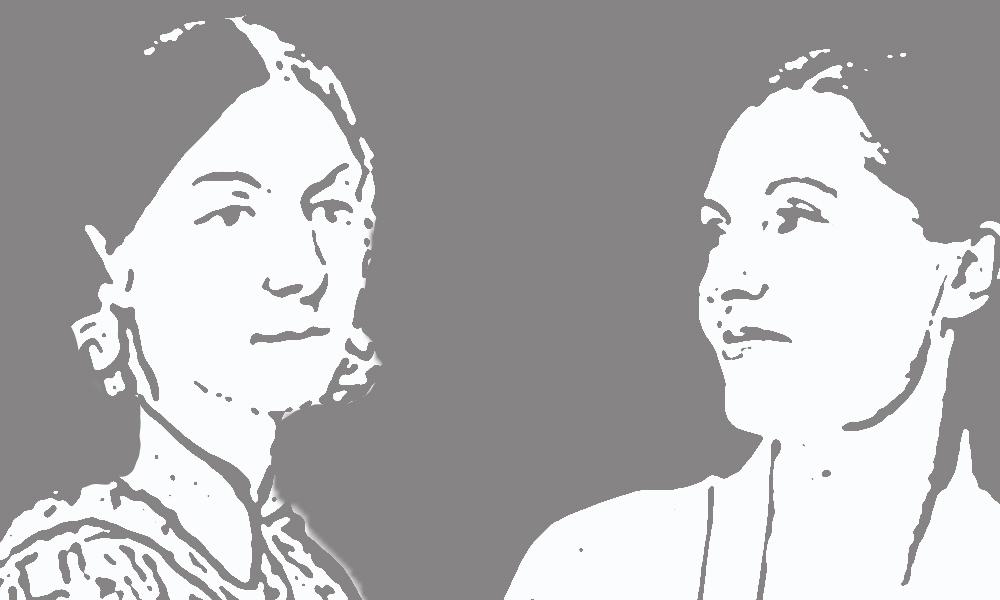UC3M celebrates International Day of Women and Girls in Science
11th February 2021
2/9/21
The Universidad Carlos III de Madrid (UC3M) joins the celebration of International Day of Women and Girls in Science 2021 by organising different activities, such as a Florence Nightingale (a nurse who transformed the data world in the 19thcentury) Gymkhana, an interactive, online theatre show about the documentary “El enigma Agustina” and several other online exhibitions about highlighted scientists and technologists.

The UC3M will host an online event at 12pm on Thursday 11th February, coinciding with the International Day of Women and Girls in Science, a Gymkhana aimed at high school students in the 1st to 4thyears. This activity focuses on data science, using Florence Nightingale as a reference as she is considered to be the founder of modern nursing and one of the pioneers in using statistical graphs to persuade authorities to change their health care strategies. The aim of this activity is to introduce the idea of visualising and interpreting data related to the COVID-19 pandemic. For this purpose, several manuals and teaching guides will be provided to guide the participating teams with their work, supported by UC3M students undertaking Degrees in Statistics and Business and Data Science and Engineering. The online event will be attended by Guadalupe Gómez Melis, professorat the Polytechnic University of Catalonia’s Department of Statistics and Operational Research and member of the Working Group for the International Year of Women in Statistics and Data Science, to talk about Florence Nightingale. More information and registration, open until 10th February, are available on this website.
On Friday 12th February, a theatrical performance of “El Enigma Agustina” will be broadcast live on YouTube at 11am, aimed at high school students in the 3rd and 4th years as well as undergraduate students. This activity focuses on a female scientist who lived in Spain in the first third of the 20th century and addresses topics such as relativity, quantum mechanics and cosmology, as well as issues related to the history of Spanish science. Educational centres can participate as spectators, as well as being able to choose students to take part in the virtual colloquium about the documentary with two of its protagonists, communicator, Natalia Ruiz Zelmanovitch, and astrophysicist, Manuel González García. UC3M Deputy Vice-President for Equality, Rosario Ruiz Franco, has also planned a closing speech. In order to take part in this event, you must have previously seen the documentary “El enigma Agustina”. Registration and more information are available on this website.
In addition to this, an online exhibition about female STEM researchers (Science, Technology, Engineering, Mathematics) who try to inspire and awaken curiosity for girls and young women in science has been organised. The exhibition has been structured in two parts: firstly, a website with 15 virtual panels about female researchers at the UC3 School of Engineering summarising their scientific area, describing the scope of their research and choosing a prominent quote related to R&D&I; secondly, another area with 17 virtual panels with information about important women in the history of science and technology, such as Frances Arnold, Elizabeth Blackburn, Anita Borg, Marie Curie, Rosalind Franklin, Hipatia de Alejandría, Sally Kristen Ride, Hedy Lamarr, Rita Levi-Montalcini, Ada Lovelace, Lise Meitner, María Mitchell, Grace Murray Hopper, Margarita Salas, Vera Rubin, Karen Spärck Jones and Jill Tarter. All of this information is available on this website.
These activities are part of STEM for Girls UC3M, a programme that promotes STEM vocations for girls and young women in collaboration with the Institute of Women at the Spanish Ministry of Equality. One of the programme’s main objectives is to familiarise high school students with role models who inspire them to choose their university studies without gender biases. To do this, the programme comprises four areas of work: mentoring activities, performing arts, competitions, and technological workshops. More information is available at www.uc3m.es/stemforgirls
Collaboration with APTE
The UC3M’s Vice-President of Students and Equality, Mónica Campos, will announce STEM for Girls UC3M during an online conference on 11th February at 3.30pm to highlight Spanish initiatives that promote women’s talent in science, technology, and innovation. This event is being organised by the Association of Science and Technology Parks in Spain (APTE, in its Spanish acronym), through the coordination of the Spanish Technological Platform for Disruptive Technologies (DISRUPTIVE). More information and registration are available on this website.
You can also visit the “Mujeres que cambiaron el mundo” (Women who changed the world) online exhibition, which aims to highlight women’s contribution to R&D&I throughout history. The UC3M developed this exhibition within the framework of the second edition of “Women in Science and Technology”, an initiative promoted by the APTE. This exhibition is structured in three parts. Firstly, there are eight panels with information about important women in the history of science and technology, such as Ada Lovelace, Alice Ba, Arlene Sharpe, Cecilia Payne-Gaposchkin, Cristiane Nusslein-Volhard, Emmanuelle Charpentier, Hedy Lammar, Hipatia de Alejandría, Katherine Jackson, Lene Vestergaard Hau, Marie Curie, Margarita Salas, Rita Levi-Montalccini, Rosalind Franklin and Valentina Tereshkova. Secondly, there are two panels about the scientific activity of researchers and technologists at the UC3M. Finally, there is a third panel showing the work of 24 young women in STEM who work at companies in the University’s and Leganés Tecnológico Science Park. All of this information is available in Spanish and English on the following website.